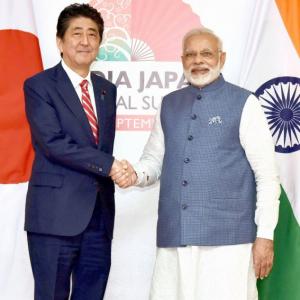
Chartered Accountant ( 公認会計士) (공인 회계사 )(CONTABILISTAS) (CONTADORES PÚBLICOS) (ДИПЛОМИРОВАННЫЕ БУХГАЛТЕРЫ СЧЕТОВОДИТЕЛИ) (会计师事务所) (COMPTABLES CHARTERES) (WIRTSCHAFTSPRÜFER) (сметководители) (MUHASEBE MÜTEAHHİTLİĞİ) (محاسبون قانونيون) (CHARTERED AKUNTAN)(Geoktrooieerde Rekenmeesters)(registeraccountants)(RAGIONIERI REGISTRATI)חשבונות רואי חשבון) (This blog is non-commercial and is used here to put important news only for the educational purpose of Students doing CA and CS.
Sunday, June 30, 2019
Saturday, June 29, 2019
LATEST GST NOTIFICATIONS ISSUED BY CBIC ON JUNE 28 2019 -SOURCE TAXGURURCE t
GST NOTIFICATIONS ISSUED:
CBIC issued the Notification No. 26/2019, 27/2019/28/2019, 29/2019, 30/2019, 31/2019, 32/2019 on 28th June 28, 2019 related to various issues. The detailed analysis are mentioned below:
| S.No | Notification No | Description | Analysis |
| 1 | Notification No. 26/2019 – Central Tax Dated 28th June 2019 | Seeks to extend the due date of filing returns in FORM GSTR-7 | The due date for filing GSTR-7 from October, 2018 to July, 2019 extended till the 31st day of August, 2019. |
| 2 | Notification No. 27/2019 – Central Tax Dated 28th June 2019 | Seeks to prescribe the due date for furnishing FORM GSTR-1 for registered persons having aggregate turnover of up to 1.5 crore rupees for the months of July, 2019 to September,2019. | The due date for filing GSTR-1 for registered persons having aggregate turnover of up to 1.5 crore rupees for the months of July, 2019 to September,2019 is 31st October, 2019. |
| 3 | Notification No. 28/2019 – Central Tax Dated 28th June 2019 | Seeks to extend the due date for furnishing FORM GSTR-1 for registered persons having aggregate turnover of more than 1.5 crore rupees for the months of July, 2019 to September,2019 | The due date for filing GSTR-1 for registered persons having aggregate turnover of more than 1.5 crore rupees for the months of July, 2019 to September,2019is eleventh day of the month succeeding such month. |
| 4 | Notification No. 29/2019 – Central Tax Dated 28th June 2019 | Seeks to prescribe the due date for furnishing FORM GSTR-3B for the months of July, 2019 to September,2019. | The due date for filing GSTR-3B for the months of July, 2019 to September,2019 is on or before the twentieth day of the month
succeeding such month.
|
| 5 | Notification No. 30/2019 – Central Tax Dated 28th June 2019 | Seeks to provide exemption from furnishing of Annual Return / Reconciliation Statement for suppliers of Online Information Database Access and Retrieval Services(“OIDAR services”). | ü The said category of taxpayers shall not be required to furnish an annual return in FORM GSTR-9 under sub-section (1) of section 44 of the said Act read with sub-rule (1) of rule 80 of the said rules.
ü The said category of taxpayers shall not be required to furnish an annual return in FORM GSTR-9C under sub-section (2) of section 44 of the said Act read with sub-rule (3) of rule 80 of the said rules.
|
| 5 | Notification No. 31/2019 – Central Tax Dated 28th June 2019 | Seeks to carry out changes in the CGST Rules, 2017. | The detailed analysis related to this is mentioned below. |
| 6 | Notification No. 32/2019 – Central Tax Dated 28th June 2019 | Seeks to extend the due date for furnishing the declaration FORM GST ITC-04 | The due date for filing ITC-04 from July, 2017 to June, 2019 extended till the 31st day of August, 2019. |
Analysis related to Notification No. 31/2019
1. Furnishing of Bank Account Details: The taxpayer needs to furnish the information with respect to details of bank account, or any other information, as may be required on the common portal in order to comply with any other provision within not later than forty five days from the date of grant of registration or the date on which the return required under section 39 is due to be furnished, whichever is earlier.
2. Value of supply in cases where Kerala Flood Cess is applicable: The value of supply of goods or services or both on which Kerala Flood Cess is levied under clause 14 of the Kerala Finance Bill, 2019 shall be deemed to be the value determined in terms of section 15 of the Act, but shall not include the said cess.”
PMT-09: Transfer of amount from one account head to another account head in electronic cash ledger.
A registered person may, on the common portal, transfer any amount of tax, interest, penalty, fee or any other amount available in the electronic cash ledger under the Act to the electronic cash ledger for integrated tax, central tax, State tax or Union territory tax or cess in FORM GST PMT-09.”.

4. New Rule Introduced (Rule 95A) effective from 01.07.2019
Rule 95A: Refund of taxes to the retail outlets established in departure area of an international Airport beyond immigration counters making tax free supply to an outgoing international tourist.-
A. Retail outlet established in departure area of an international airport, beyond the immigration counters, supplying indigenous goods to an outgoing international tourist who is leaving India shall be eligible to claim refund of tax paid by it on inward supply of such goods.
B. Retail outlet claiming refund of the taxes paid on his inward supplies, shall furnish the application for refund claim in FORM GST RFD- 10B on a monthly or quarterly basis, as the case may be, through the common portal either directly or through a Facilitation Centre notified by the Commissioner.
C. The self-certified compiled information of invoices issued for the supply made during the month or the quarter, as the case may be, along with concerned purchase invoice shall be submitted along with the refund application.
D. The refund of tax paid by the said retail outlet shall be available if-
(a) the inward supplies of goods were received by the said retail outlet from a registered person against a tax invoice;
(b) the said goods were supplied by the said retail outlet to an outgoing international tourist against foreign exchange without charging any tax;
(c) name and Goods and Services Tax Identification Number of the retail outlet is mentioned in the tax invoice for the inward supply; and
(d) such other restrictions or conditions, as may be specified, are satisfied.
Author Bio
Name: CS Shashank Kothiyal
Qualification: CS
Company: N/A
Location: Delhi, New Delhi, IN
Member Since: 15 Jul 2018 | Total Posts: 30
Company Secretary by Profession, Certified CSR Professional from ICSI Contact us @ shashank.kothiyal9@gmail.com
Thursday, June 27, 2019
Ahead of G20 Summit, Modi meets Japan's Abe June 27, 2019 13:03 IST:Rediffmail.com
Ahead of G20 Summit, Modi meets Japan's Abe
June 27, 2019 13:03 IST
Ahead of the G20 Summit, Prime Minister Narendra Modi met his Japanese counterpart Shinzo Abe in Osaka, Japan and discussed a range of issues of mutual interest.

Prime Minister Narendra Modi meets his Japanese counterpart Shinzo Abe in Osaka, Japan. This is the first meeting between the two leaders since the start of Japan's Reiwa era. The prime minister said that President Ram Nath Kovind will participate in the coronation ceremony of Emperor Naruhito in October. Photograph: PIB/PTI

Modi thanked Abe for his warm welcome to him and the Indian delegation visiting Japan for the G20 Summit. He also appreciated Japan's leadership as the G20 chairman. Speaking of the meeting, Foreign Secretary Vijay Gokhale said that it was a very warm meeting, both leaders are old friends. Photograph: @MEAIndia/Twitter
Wednesday, June 26, 2019
Government mulls ceiling for audit firms amid crack down on lapses Governance lapses, negligence has loaded the banks with one of the world’s worst piles of bad debt. Bloomberg|Updated: Jun 26, 2019, 03.03 PM IST

By Shruti Srivastava
India is considering tougher rules for audit firms, including a cap on the number of listed companies they can examine, according to a person with knowledge of the matter, as the government seeks to tighten oversight after a recent spate of governance lapses.
In India, 70% of the about 1,800 companies that trade on the National Stock Exchange are audited by firms affiliated to EY, Deloitte & Touche, KPMG and PWC, according to Delhi-based Prime Database. Current rules stipulate that individual auditors can examine accounts of up to 20 companies, though there is no limit on number of audits for the company.
The Big Four in India operate through a network of local chartered accountants firms. One way for them is to partner as a member of a local firm. They can also allow their brand name to be used by sub-licensee of a member local firm. The ministry hasn’t decided if the cap on audits will be at the group level or on each member firm, the person said.
The government is planning to expand the list of services which can’t be offered by statutory auditors under the Companies Act. Currently, statutory auditors can’t offer nine services, directly or indirectly, including internal audit, investment banking, and actuarial services. There is no restriction on providing services such as taxation or restructuring and valuation.
One option is to tweak the present cap on fees that can be generated through offering non-audit services, the person said. This cap, fixed in 2002, says fees from non-audit work can’t be more than the aggregate statutory audit fees. A spokeswoman for the corporate affairs ministry declined to comment.
A government-appointed panel on regulating auditors and the networks had suggested that the fee from non-audit services should not be more than 50% of the audit fee.
Deloitte Ban
Governance lapses and negligence has loaded the nation’s banks with one of the world’s worst piles of bad debt. In some cases, allegations of fund diversion have surfaced, while the founders of some shadow banks have faced accusations of accepting kickbacks in exchange for loans.
The corporate affairs ministry earlier this month sought a ban on Deloitte Haskins & Sells and BSR & Co. for their role as auditors to IL&FS Financial Services, a part of the IL&FS Group that was seized by the government last year after a string of debt defaults.
Deloitte in an emailed statement said it’s fully compliant with Indian audit standards, while BSR said it would defend its position in accordance with the law.
Meanwhile, the banking regulator forbid EY affiliate S. R. Batliboi & Co. from taking on bank audits for a year and, in 2018, the markets watchdog banned the local unit of PricewaterhouseCoopers LLP for two years in relations to work from a decade earlier.
Too Hilarious
What is *GENERATION
GAP*
Father used to walk 20 mins to save ₹20.
Son spends ₹20 to save 20 mins.
(Surprisingly both r correct !)
-----------------------------------------------------
*Cultural Gap*
If *electricity* goes in *America* they call the
power house.
In *Japan*, they test the fuse,
But In *India*, they check neighbour's house,
"power gone there too, then ok !"
-----------------------------------------------------
*Sense of Responsibility*
A man goes to library n asks for a book on Suicide.
Librarian looks at him & says: "hello who will return the book ?"
-----------------------------------------------------
*Grandfather to Grandson:*
Go hide! Your teacher is coming as u bunked school
today!
*Grandson:* U go hide I told her you passed
away! 😛
-----------------------------------------------------
*Sister to brother:* What r u going to gift grandma
on her b'day?
*Brother:* A football
*Sister:* But grandma does not play!
*Brother:* On my B'day she gave me Bhagavat
Gita.
-----------------------------------------------------
Centre to scrutinise companies that haven't filed online KYC details The government expected another 1.5 lakh companies to complete filing the KYC forms within the next month. By Karunjit Singh, ET Bureau

NEW DELHI: The Centre will soon begin scrutinising companies that have not filed online Know Your Customer (KYC) details, including photographs of the registered office and directors, as New Delhi seeks to crack down on shell companies and plug tax sieves.
" We want to clear our registry (of shell companies and dormant companies)," said a senior government official.
The "Active Company Tagging Identities and Verification (ACTIVE)" form requires companies to upload a a photograph of the external facade of their registered office with a board displaying the company name, corporate identity number, address of the entity, email, geographical location and phone number.
The official said that almost 7 lakh companies out of the 11.5 lakh registered in the country had completed the filings.
"Based on some internal criteria, non-compliant companies will be subject to detailed scrutiny. The criteria will be based on the red flags of the joint task force," said the official.
The government expected another 1.5 lakh companies to complete filing the KYC forms within the next month. The Ministry of Corporate Affairs (MCA) has deleted more than 3.4 lakh companies from the register in the past three fiscal years.
The companies that file the KYC after the deadline of June 15 will be charged a late filing fee of Rs 10,000. The MCA had initially set April 25 as the last date for filing but extended the deadline after receiving representations from industry, which had sought more time to comply with filing requirements.
Monday, June 24, 2019
New smart system to prevent baggage theft at airports :livemint Updated: 24 Jun 2019, 01:31 PM IST

- Travellers face long queues at crowded airports, and have to spend a lot of time in queues for collecting the baggage
- During exit there is no one to verify that the luggage is taken away only by the rightful owner
- NEW DELHI: Researchers claim to have developed a smart system that can help prevent baggage theft and facilitate hassle free collection of luggage at airports by providing estimated time of arrival (ETA) at the conveyor belt for pickup.The novel solution developed by a team at Lovely Professional University (LPU) in Punjab restricts a person from taking away someone else's baggage at the exit gate of the airport.The system also assists the passengers by reminding them in case they have forgotten to collect their baggage, researchers said.They noted that despite having a tight security system at most of the airports, baggage loss or theft is a common issue among travellers.While there is a strict process in place for luggage collection on departure, very little emphasis has been given to baggage collection and theft prevention process on arrival, they said.Also, airports have not come up with any system to locate or track baggage, which forces the passengers to stand in queue and wait for several minutes for their luggage to arrive.
- "During our research, we could not find any existing systems providing services similar to us. Our solution is helpful to resolve these problems that have not been addressed so far," Gurjot Singh Gaba, Assistant Professor at LPU, told PTI."Passengers who pay a huge amount as airfare would benefit from this technology. Their baggage loss would be prevented and also they would easily collect their luggage at the airports," Gaba said.According to a report by the aviation IT specialist, SITA, every minute 40 bags get mishandled worldwide.In 2018, that amounted to more than 24.8 million mishandled bags, costing the air transport industry USD 2.4 billion, researchers said."Airport authorities receive baggage loss cases of million dollars every year which tarnishes their reputation. With our system, they could prevent losses of this kind. Hence, it will be beneficial for airport authorities as well," Gaba said.
- Travellers face long queues at crowded airports, and have to spend a lot of time in queues for collecting the baggage.The passengers have to stand around the conveyor belt until their respective baggage arrives.The entrance of airport has high security but during exit there is no one to verify that the luggage is taken away only by the rightful owner.The proposed system provides the solution to overcome both of these issues."We have used the existing technology of passenger database creation at airports along with most used technology for logistics (bar codes scanners and bar codes) which drives the system," Pawan Kumar Raghav, B.Tech student of Electronics and Communications at LPU told PTI."The baggage on the conveyor belts is tracked and the passengers are informed about their luggage arrival schedule on the liquid crystal displays (LCDs) placed near the conveyor belt.
- "During exit, our smart system placed at exit gates verifies the authenticity of the baggage owner," said Raghav, who led the student team, including Vikas Singh and Deepak Singh Bisht.Researchers said the system will be placed at the conveyer belt where the associated display board will indicate the estimated time of arrival (ETA) of baggage with passenger details.The passenger can come forward as per the ETA to collect the luggage and exit from the airport door.While exiting, the system will scan and authenticate the luggage details associated with the passenger and match it to a centralised database.The gate will open only if the details are found to be correct, thus allowing only legitimate owners to take away their baggage.
- In case a passenger has left his baggage at the conveyer belt, the system will remind that passenger to collect the luggage from the belt."We have made an association between baggage and passenger. If the passenger is taking away the baggage through the exit gate which is not associated with him, our smart system will alert and not let the passenger go out of the airport," Raghav added."Thus our system helps the passenger during baggage pickup from conveyor belt as well as protects baggage from being stolen," he said.The researchers said the hardware of the system does not require much space for deployment and it can be easily integrated into the existing systems at airports.Till now, the team has tested the system in a "miniaturised form."
- "Our research has been carried out on a small scale to validate the invention and claims as these kinds of inventions need a huge infrastructure, money and permissions to test on a large scale," Raghav noted.The researchers have applied for a patent for the system, which they said has been selected for commercialisation by National Research Development Corporation (NRDC).The cost of the technology will depend on the number of conveyor belts on which the service will be offered and the number of exit gates where smart tracking system will be deployed."As most of the infrastructure already exists, so the cost of implementation is not going to be a challenge," Gaba said.This story has been published from a wire agency feed without modifications to the text. Only the headline has been changed.
Dormant PF account will earn interest till the holder attains retirement age :livemint Updated: 24 Jun 2019, 12:56 PM IST

After 36 months have passed since the last active contribution in a PF account, it gets categorised as dormant account
I migrated to Australia on a permanent resident visa last month. I have a provident fund (PF) account in India which I have maintained for eight years. How long will my PF account earn interest and when would be the right time to withdraw the accumulated corpus?
—Bhanu Prakash
After 36 months have passed since the last active contribution in a PF account, it gets categorised as dormant account. However, the account continues to earn interest (the rule was amended in between for few years but was restored to its original status) till the account holder reaches retirement age.
Also, you should be aware that for the interest accrued post active contribution, the tax exemption will be limited to the accumulated balance due and payable to an employee up to the date of his continuation of service or end of his employment, which implies that the interest earned after leaving the employment will be considered as taxable.
I worked with a company for more than five years before making a switch. But I am unable to withdraw my PF as I joined a new company; so I’ll have to transfer it. But if I leave this company after a year and don’t have a job henceforth, will my PF withdrawal be taxable or tax free?
—Vishal Mane
As per the provisions of Income Tax Act, contribution to recognised provident fund will not attract any tax liability in the following cases: a) If the employee has rendered continuous service for a period of five years or more. For the purpose of calculating five-year time limit, services rendered with the previous employer is also included, and it is assumed that the PF account balance of the previous employee has been transferred to the current employer. Therefore, it will also include employment with two employers where each stint is for less than five years, but in total the continuous period of service exceeds five years. b) If the employee has been terminated because of certain reasons which are beyond his control (like ill health, discontinuation of the business by employer, or any other cause beyond the control of the employee). If an employee makes withdrawal before continuous service of five years for reason other than the cases given above, the withdrawal will be taxable in the hands of the employee.
You completed five years of service with one employer before you changed your employment. You have also transferred your PF. So even if you withdraw your PF corpus from your new employer after one year, the complete PF withdrawal would be tax free in your hands.
Surya Bhatia is managing partner of Asset Managers. Queries and views at mintmoney@livemint.com
Subscribe to:
Posts (Atom)




